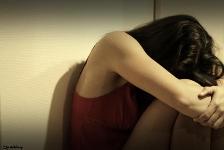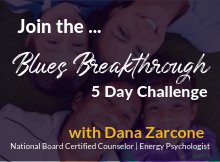Unipolar Depression
How is it Different?

Unipolar depression, while not widely heard of, is one of many different types of depression. It is a major depressive disorder that is recognized by a low, “blah” kind of mood, low self-esteem and the loss of interest in activities that were once quite enjoyable.
The reason it is called Unipolar is because the person does not typically experience mood swings. Rather, a depressed mood is experienced consistently. This is opposite of Bipolar depression which is when the person oscillates between an energetic, manic mood and a depressive mood.
Symptoms of Unipolar Depression
As with many serious depressive conditions, there is a significant impact on the person’s ability to function every day. The depression affects the person’s relationships, work life, family life, and ultimately their overall health and well being. There are many symptoms and signs of unipolar, or major depressive disorder. They include the following:
These symptoms should be present for at least two (2) weeks or longer.
Often times the major depressive disorder is accompanied by some other condition. Emotional conditions include high levels of anxiety and stress. Physical conditions include things such as cardiovascular disease and obesity. In fact, depression increases the chance of cardiovascular disease dramatically. Depression is also often found with unemployment and poverty as well. It’s unfortunate however, there is usually an increase in the use of alcohol and/or drugs.
Causes
The causes are many as they can range from biological, psychological or social. From a biological perspective it is suggested that the person has a chemical imbalance in the brain where the levels of monoamines – the neurotransmitters dopamine, norepinephrine and serotonin are out of balance.
The psychological aspects include (but are not limited to) low self esteem, negative self talk, lack of coping skills and distorted sense of reality.
Social aspects include experience with emotional, physical or verbal abuse, divorce, death of a loved one, poverty, rejection, and lack of support.
Treatment Options
Treatment options vary tremendously and include psychotherapy, cognitive behavioral therapy, antidepressants, electroconvulsive therapy (pulses of electricity sent through the brain), deep brain stimulation (electrodes inserted into the brain tissue via a hole drilled in the skull), physical exercise, herbal remedies for depression, and other natural remedies for depression.
If you are suffering with a major depressive disorder, or unipolar depression, it is important to take a depression test as a indicator of whether you might need to seek out professional help.
It's important to note that these tests are not meant to be a diagnosis method. Rather, they are simply meant to provide you with additional information so you can determine the appropriate course of action.
Browse through my site to learn about other types of depression as well.
Manic depression: The opposite of Unipolar Depression
Unipolar Depression to Home Page









